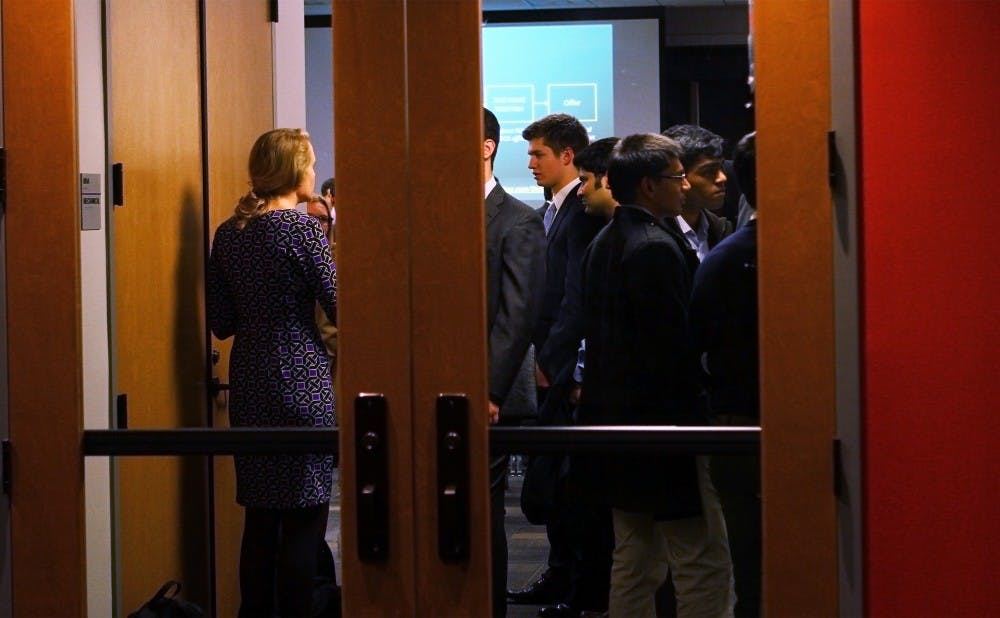The beginning of Spring semester kicks off the summer internship and post-graduation job search, and the stress can take quite a toll on the student body.
The fear of not finding a job, coupled with baseline academic and extracurricular commitments, can make it easy for students to burn out. Stress can be exacerbated when one starts comparing their own job prospects to that of others, said Gary Glass, associate director for outreach and developmental programming at Counseling and Psychological Services. These comparisons often delude students away from their own job ambitions and focus instead on the priorities of other students.
Additionally, stress from searching for jobs could reflect deeper feelings of failure and can cause students to focus on the negatives rather than the positives.
“When you are pessimistic, you are not going to be as sharp, and that will create a self-fulfilling prophecy,” he added.
The search can be particularly stressful for finance students, said senior Lauren McGuiggan, an economics major.
“Given that having a summer banking internship is crucial to eventually receiving a full-time offer, there can be a lot of pressure on students as they interview for such internships,” she said. “I felt that recruiting season for summer internships was reasonably stressful, especially coming back from a semester abroad.”
Although recruiting will always be somewhat stressful, there are ways to balance your schedule so one does not completely fall of the rails, said Emma Rasiel, professor of economics and academic director of financial education partnership.
With regard to on-campus interviews, Rasiel noted the importance of signing up early to avoid claiming slots that conflict with class time. Additionally, during the heavy recruitment period beginning on January 27 and ending in mid to late February, students should consider minimizing their extra-curricular activities.
“Don’t commit yourself to a committee that requires you to be in two meetings a week in that time,” Rasiel said. “You are going to be incredibly busy, and it’s going to be enough trouble just to keep up with course work.”
For finance, early involvement in extracurricular activities, however, is a good way to prepare future applicants for the professional world, noted senior Katya Prosvirkina.
“I think students who are in groups like Consulting Club, Investment Club, [Duke Association for Business Oriented Women] have it much easier because they get a very structured exposure to career possibilities early on,” she said.
“That definitely made my process easier and allowed me to network much earlier.”
Additionally, conversations with Duke alumni and seniors can also help make the process more accessible, McGuiggan said.
“They really helped me learn how to tell my story in an interview, meaning explain why I was interested in finance and why I felt like I would make a good investment banking analyst,” she said.
For non-finance jobs, a lack of concrete structure may prove to be another challenge facing some seniors. There often is not a designated time period when all applications are due, said senior Danielle Nelson, a women’s studies and spanish double major and Chronicle columnist.
“Most of the jobs I’m applying for have deadlines around late February or early March, but I’m not sure when they will get back to me,” she said.
Additionally, some employers don’t post available positions until later in the semester or until they need someone, leading to anxiety.
“It makes me feel a little uncertain because there’s no guarantee that...an organization will be hiring when I’m actively looking for post-grad job opportunities,” Nelson said.
Glass noted that students often blow their job search out of proportion, and should instead look at the bigger picture.
“Think of it as just a very tiny first step in a life long process and be able to put that in perspective,” he said.
Get The Chronicle straight to your inbox
Signup for our weekly newsletter. Cancel at any time.

